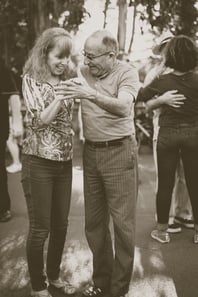
Adults 65 and older account for 16% of the US population but 80% of COVID-19 deaths. Even as most states begin to gradually reopen society to restart a stalled economy, the message to the elderly is “NOT YOU”. You best - “STAY HOME” – “ISOLATE” - “QUARANTINE” while the rest of society risks illness trying to get on with life.
Social workers who work with the elderly are concerned. They say that during times of crisis, mental health cannot be overlooked. Loneliness and social isolation for older adults have a deep, emotional impact, sometimes leading to social disorders such as depression and anxiety. Social isolation has also been linked to increases in emergency department visits, hospitalizations, and nursing home placements.
What Social Workers Recommend
The COVID-19 pandemic has raged on longer than anyone predicted and looks like it is warming up for a “second spike” as the fall and winter come on. Seniors will be isolated for a further extended period, and social workers are recommending the following course of self-care for all seniors.
- PHYSICAL ACTIVITY – Increase physical activity such as walking or stretching beyond your normal activity level. You will be surprised how much this will calm your nerves and reduce tension.
- NUTRITION – Eat healthy, well-balanced meals and avoid alcohol and drugs. This is more than your mother’s good advice. This is critical to your mental and physical well-being and will be a boost to your immune system.
- SLEEP – Get adequate sleep. If you find it difficult to sleep during the night, nap often during the day. Do not resist napping because you think you will sleep better at night if you don’t take naps. Sleep whenever your body tells you to. The buildup of mental tension from the isolation and constant fear of contamination is what’s causing you to awaken at night. It is natural and not surprising. Sleep as often as your body tells you to during the day. You will find it quite refreshing.
- LISTEN TO MUSIC – Watch comedy on television. Read humorous books. Take up painting. Chat on the phone with upbeat friends or family members. In other words, take a renewed interest in activities that make you happy. Consciously choose them over watching constant negative COVID-19 news or political conflict on television.
- MEDITATE – Sit calmly in silence and feel your body function automatically. This simple technique puts you in touch with your own physical well-being such as it is. It is very affirming, even when you’re frail.
- PET – Get a pet and spend time sitting quietly with it. This will mitigate the isolation and loneliness the COVID-19 quarantine has imposed. It is also quite inspiring to have to care for someone or something other than yourself.
- ACTIVE MIND – Keep an active mind by engaging in any mental activity that you enjoy such as doing crossword puzzles. Doing volunteer work online is a very good way to stay engaged and challenge your mind to help others solve problems. The time will fly by, and you will feel energized.
Public Assistance for Seniors
Social workers in state agencies have come up with some novel ways to assist the senior population during their pandemic isolation. Here are a few examples. Check for programs in your state.
California – Created a campaign called Neighbor-to-Neighbor that encourages neighbors to connect using the Nextdoor website or app. Social workers provide technology, training and encouragement for seniors unfamiliar with social technology.
Colorado – The State Unit on Aging is providing classes through video connection technologies (such as a Zoom meeting). Colorado is also utilizing their Americorp volunteers and transportation providers to deliver groceries and home delivered meals to older adults.
District of Columbia – DC’s Department of Aging and Community Living (DACL) created a new “Call & Talk” program. Older adults can sign up to be paired with staff and volunteers for regular conversations, whether that is every day or weekly.
Florida – The Florida Department of Elder Affairs (DOEA) has implemented the following initiative to mitigate the impact of COVID-19: Before the pandemic, over 45,000 meals a day were provided to older adults throughout Florida. While one third of these meals were delivered to the homes of those too frail to participate in community activities, the remaining two thirds received their meals in a congregate setting such as senior centers, community meal sites, and non-residential adult care facilities. However, all congregate meal sites were closed throughout the state to prevent the spread of COVID-19. Many of these older adults receive their only meal for the day when attending programs that serve meals and face going without a meal when these sites are closed.
To ensure that all older adults continued to receive meals, DOEA afforded service providers program flexibility. Providers now have the option of allowing them to come to a meal site and “drive-thru”, affording them a meal while also complying with social distancing. For older people who do not have transportation, or where community regulations restrict travel, meals are delivered directly to their homes. There is not one older adult who received meals in a congregate setting prior to site closures that has not had a meal made available to them during site closures.
Where would we be without our dedicated social workers?

